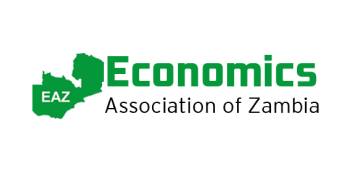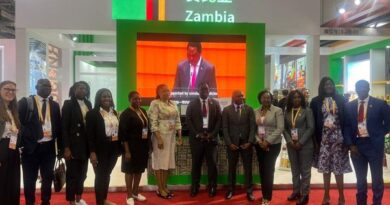EAZ Outlines Key Expectations for 2025 National Budget
The Economics Association of Zambia (EAZ) has released a press statement detailing crucial expectations for the upcoming 2025 National Budget, urging the Ministry of Finance to craft a budget that effectively addresses the nation’s immediate needs while aligning with long-term development goals.
Dr. Oswald Mungule, President of EAZ, emphasized the importance of the budget as a strategic policy tool in promoting economic stability and growth.
EAZ calls for a robust focus on several key areas, starting with Increased Domestic Revenue Financing. The association urges the government to prioritize domestic revenue financing to lessen dependence on external borrowing. They advocate for at least 80% of the budget to be sourced domestically, targeting a broader tax base to enhance fiscal sustainability.
The association highlights the need to focus on critical sectors—Energy, Mining, Agriculture, and Manufacturing—to spur economic recovery. They stress the importance of investment in the energy sector to resolve shortages, creating a conducive environment for mining, and boosting agricultural mechanization to support local industries. By prioritizing these sectors, the budget can drive significant economic growth and job creation.
EAZ also advocates for the Growth in Non-Traditional Sectors, particularly logistics, to diversify the economy and enhance competitiveness in regional and global markets. Improved logistics infrastructure is seen as essential for job creation and economic growth, ensuring the efficient movement of goods both domestically and to export markets.
To address the urgent need for resilience against economic shocks, the budget must focus on building economic resilience. EAZ emphasizes that concentrating on key sectors will help mitigate potential adverse impacts from global and domestic challenges.
Another significant recommendation from EAZ is the adoption of an Export-Led Growth Strategy. They call for the budget to prioritize export-led initiatives to stabilize the currency and improve liquidity. Developing a steel-led manufacturing economy, supported by government incentives for export-oriented industries, is essential for driving sustainable economic transformation.
Furthermore, EAZ suggests a Review of Constituency Development Fund (CDF) Administration. The association believes there is a need to reevaluate the current CDF model to ensure strategic allocation of funds to high-impact projects that foster community-level growth, rather than spreading resources too thinly across multiple constituencies.
Lastly, the 2025 budget should align with Zambia’s medium-term plan (2025-2027) and broader National Development Plan. EAZ emphasizes that addressing critical issues such as climate change, food security, and water scarcity is vital for ensuring long-term stability and growth in the Zambian economy.



